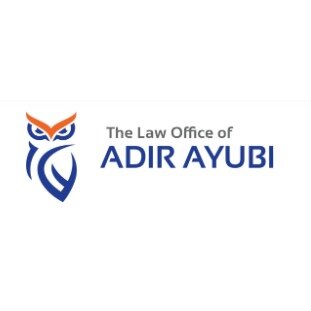Best Child Visitation Lawyers in Curaçao
Share your needs with us, get contacted by law firms.
Free. Takes 2 min.
Free Guide to Hiring a Family Lawyer
Or refine your search by selecting a city:
List of the best lawyers in Curaçao
About Child Visitation Law in Curaçao:
Child visitation in Curaçao refers to the rights of a non-custodial parent or other family members to spend time with a child after a separation or divorce. The goal is to ensure that the child maintains a relationship with both parents or caregivers, even if they do not live in the same household.
Why You May Need a Lawyer:
You may need a lawyer for child visitation issues in Curaçao if you are facing challenges in arranging visitation schedules, enforcing visitation rights, or modifying existing visitation orders. A lawyer can help you navigate the legal system, protect your rights, and advocate for the best interests of the child.
Local Laws Overview:
The Civil Code of Curaçao governs child visitation laws in the country. Key aspects include the importance of maintaining the child's relationship with both parents, the factors considered when determining visitation arrangements, and the procedures for requesting visitation modifications or enforcement.
Frequently Asked Questions:
Q: How is child visitation arranged in Curaçao?
A: Child visitation can be arranged through mutual agreement between the parents or caregivers, or by court order if there is a dispute.
Q: What factors are considered when determining visitation arrangements?
A: The court considers factors such as the child's age, relationship with each parent, and the ability of each parent to provide for the child's needs.
Q: Can visitation orders be modified?
A: Yes, visitation orders can be modified if there is a significant change in circumstances that warrant a revision of the existing arrangement.
Q: What if one parent violates the visitation order?
A: If a parent violates a visitation order, the other parent can take legal action to enforce the order and protect their visitation rights.
Q: Can grandparents or other family members petition for visitation rights?
A: In certain circumstances, grandparents and other family members may petition the court for visitation rights if it is in the best interests of the child.
Q: How can a lawyer help with child visitation issues?
A: A lawyer can provide legal advice, represent you in court proceedings, help negotiate visitation agreements, and ensure that your rights are protected throughout the process.
Q: What are the potential consequences of not complying with a visitation order?
A: Non-compliance with a visitation order can result in legal penalties, such as fines, sanctions, or even modification of custody arrangements.
Q: Is mediation an option for resolving visitation disputes?
A: Yes, mediation can be a helpful alternative to court proceedings for resolving visitation disputes amicably and reaching a mutually acceptable agreement.
Q: How long does it take to resolve visitation issues in court?
A: The timeline for resolving visitation issues in court can vary depending on the complexity of the case, the court's schedule, and the willingness of the parties to cooperate.
Q: Are there resources available for parents dealing with visitation issues in Curaçao?
A: Yes, there are legal aid services, family support organizations, and government agencies that can provide information and assistance to parents navigating child visitation issues.
Additional Resources:
For more information on child visitation laws in Curaçao, you can contact the Ministry of Justice, local family court, or consult with a qualified family law attorney for personalized legal advice.
Next Steps:
If you are facing child visitation issues in Curaçao and need legal assistance, consider reaching out to a reputable lawyer specializing in family law to discuss your rights, options, and the best course of action to take in your specific situation.
Lawzana helps you find the best lawyers and law firms in Curaçao through a curated and pre-screened list of qualified legal professionals. Our platform offers rankings and detailed profiles of attorneys and law firms, allowing you to compare based on practice areas, including Child Visitation, experience, and client feedback.
Each profile includes a description of the firm's areas of practice, client reviews, team members and partners, year of establishment, spoken languages, office locations, contact information, social media presence, and any published articles or resources. Most firms on our platform speak English and are experienced in both local and international legal matters.
Get a quote from top-rated law firms in Curaçao — quickly, securely, and without unnecessary hassle.
Disclaimer:
The information provided on this page is for general informational purposes only and does not constitute legal advice. While we strive to ensure the accuracy and relevance of the content, legal information may change over time, and interpretations of the law can vary. You should always consult with a qualified legal professional for advice specific to your situation.
We disclaim all liability for actions taken or not taken based on the content of this page. If you believe any information is incorrect or outdated, please contact us, and we will review and update it where appropriate.
Browse child visitation law firms by city in Curaçao
Refine your search by selecting a city.









